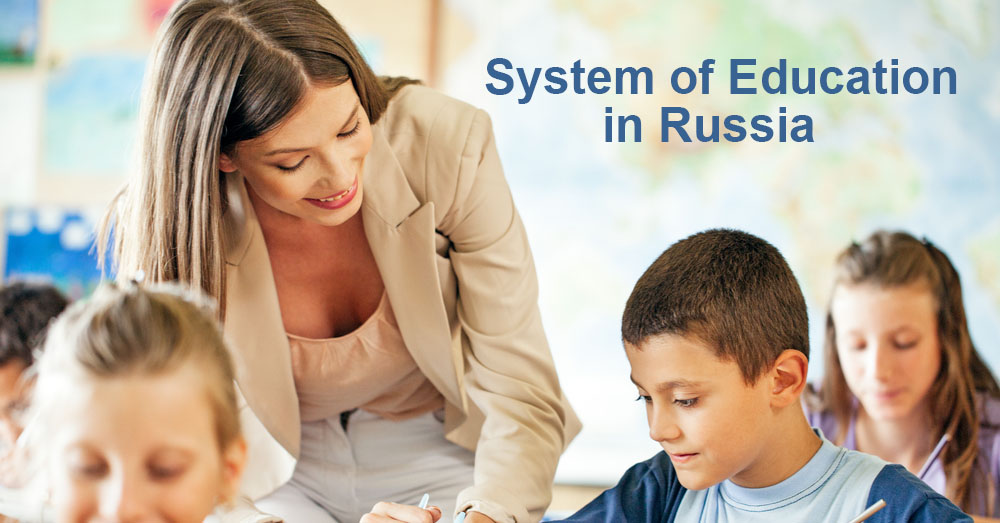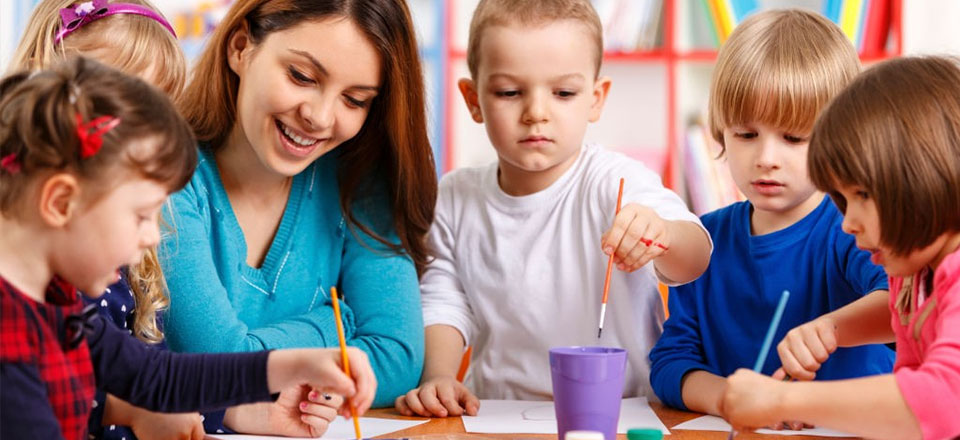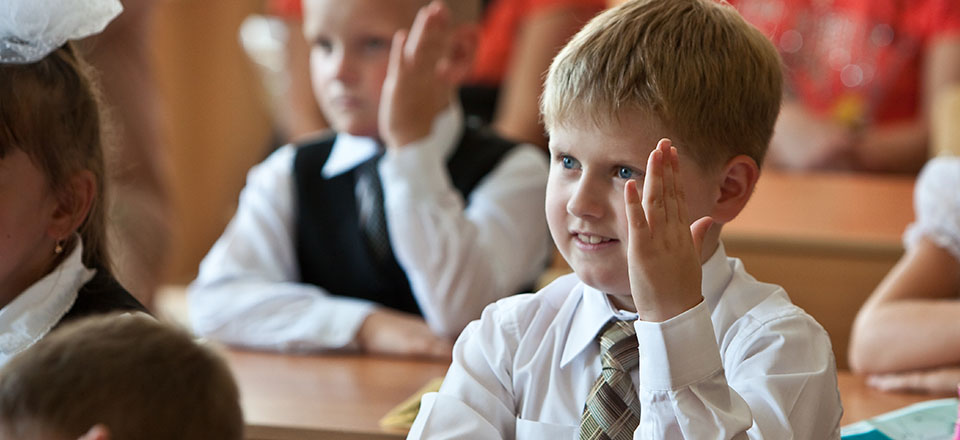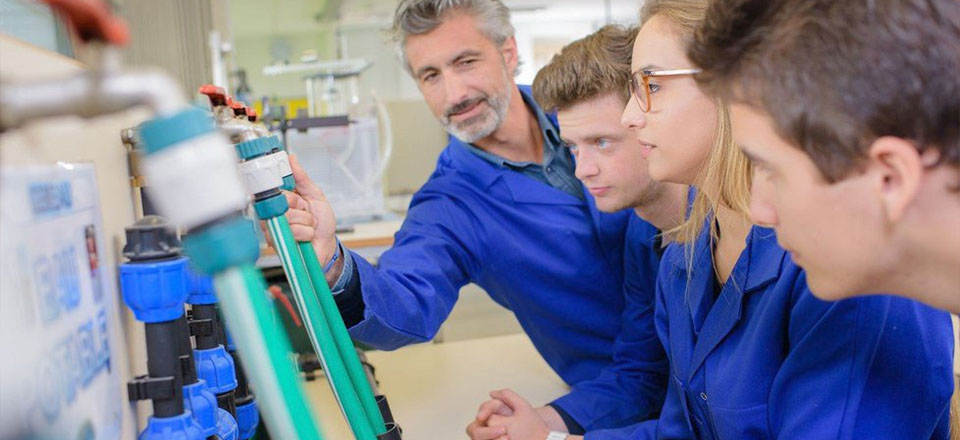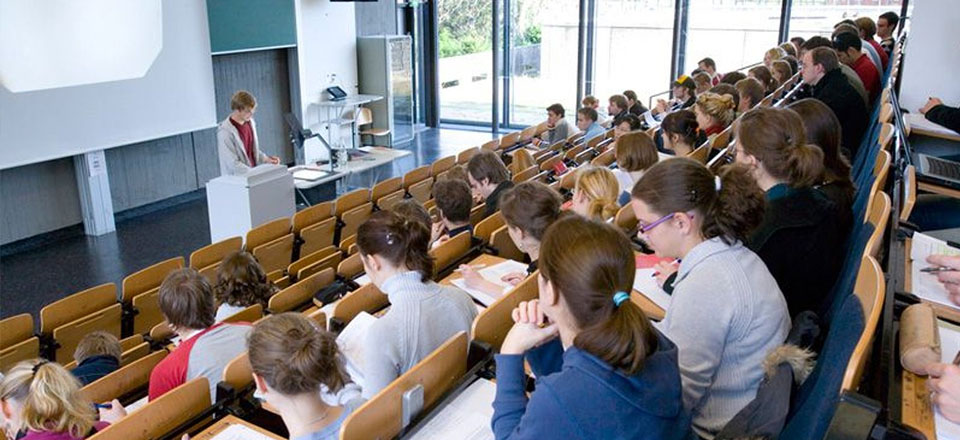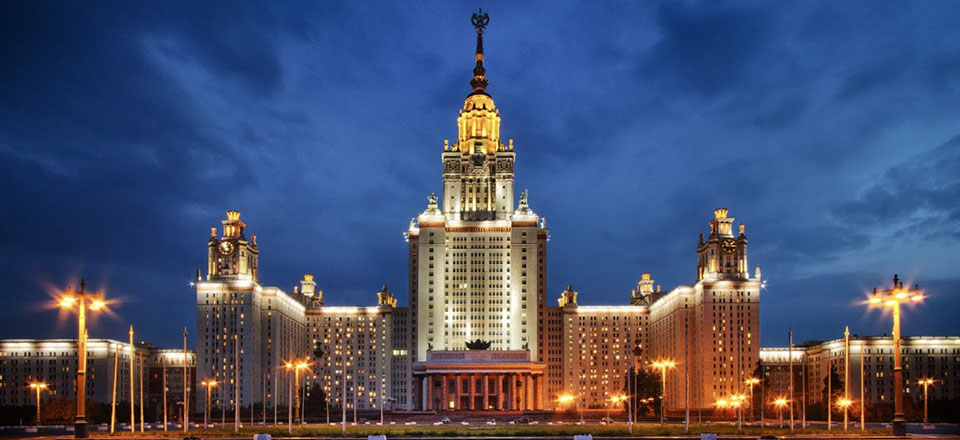Содержание
- Education in Russia
- Education in Russia
- Сочинение на тему «Образование в России» на английском языке с переводом на русский язык
- Education in Russia
- Образование в России
- Сочинение Education in Russia на английском с переводом
- Essay on Education in Russia
- Сочинение на тему Образование в России
- System of Education in Russia
- Pre-school Education
- General Secondary Education
- Vocational Education
- Higher Education
- Text «Education in Russia» (about the Russian Educational System)
- Education in Russia
- (text about the Russian Educational System for intermediate level)
Education in Russia
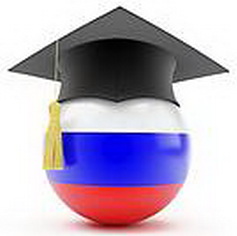
The Russian children usually start to go to school when they are seven years old. First the children learn at the elementary school. They visit the elementary school for four years. The children get there the elementary education. It means they learn to count, to read and to write. In the most schools the children also learn a foreign language beginning from the second form.
Русские дети обычно начинают ходить в школу, когда им исполняется семь лет. Сначала дети учатся в начальной школе. Начальную школу они посещают в течение четырех лет. Там они получают начальное образование. Это значит, что они учатся считать, читать и писать. В большинстве школ дети также начинают изучать иностранный язык, начиная со второго класса.
The fifth form means the beginning of the secondary education. The children learn different subjects, for example Biology, Literature, Chemistry, Physics, Informatics. In Russia the nine-year basic incomplete secondary education is compulsory. After that the children have to decide what they will do from now forth. On the one hand, they can continue their schooling and get the complete eleven-year secondary education. On the other hand, they can enter a college giving them the complete secondary education and trade training. After graduating from college the young people became financially independent and can start to work.
Пятый класс означает начало получения среднего образования. Дети изучают различные предметы, например, биологию, литературу, химию, физику, информатику. В России обязательным является девятилетнее незаконченное среднее образование. После этого дети должны решить, что они будут делать в дальнейшем. С одной стороны, они могут продолжить свою учебу в школе и получить одиннадцатилетнее законченное среднее образование. С другой стороны, они могут поступить в какой-либо колледж, который даст им и законченное среднее образование, и обучение по специальности. После окончания колледжа молодые люди становятся независимыми в финансовом отношении и могут начинать работать.
Currently there are different types of schools in Russia. The children and their parents can choose a regular school, a school with advanced study of some subject, a private school. Private schools in Russia are always fee-paying.
В настоящее время в России существуют разные типы школ. Дети и их родители могут выбрать общеобразовательную школу, школу с углубленным изучением какого-либо предмета, частную школу. Частные школы в России всегда платные.
After graduating from school or college our young people can enter universities or institutes, where they get higher education.
После окончания школы или колледжа молодые люди могут поступать в университеты или институты, где они получают высшее образование.
Источник
Education in Russia
Сочинение на тему «Образование в России» на английском языке с переводом на русский язык
Education in Russia
Образование в России
Education is a significant part of the life. There are many kinds of education: it can be self-education, school education, higher education and so on. Anyway, every kind of education gives us much experience and much knowledge which are connected not only with particular science or scientific field but also with our understanding of the world and of the people’s relationships.
Образование является важной частью жизни. Существует много видов образования: самообразование, школьное образование, высшее образование и т.д. В любом случае, каждый вид образования дает нам много опыта и много знаний, которые связаны не только с конкретной наукой или научной областью, но и с нашим пониманием мира и отношений между людьми.
The system of education varies from country to country. What is the system of education in Russia? First of all, it is divided into several groups: general education, further education and supplementary education.
Система образования в каждой стране разная. Какая система образования в России? Прежде всего, образование разделено на несколько групп: общее образование, высшее образование и дополнительное образование.
General education aimed to develop the personal qualities, basic knowledge and skills is divided into four groups: preschool education, elementary education, basic general education and secondary general education. Children who are from the age of two months to the age of seven years can go to preschool institutes. Then children who are from the age of six years and a half to the age of eight years begin to go to elementary school. It is a compulsory step of general education and it lasts four years. The following stage of education – basic general education – lasts five years. After that pupils can have secondary general education which lasts two years or go to institutions of tertiary education.
Общее образование, направленное на развитие личных качеств, базовых знаний и навыков, подразделяется на четыре группы: дошкольное, начальное, основное общее и среднее общее. Дети, которые в возрасте от двух месяцев до семи лет могут поступить в дошкольные учреждения. Затем дети, которые в возрасте от шести с половиной до восьми лет, начинают ходить в начальную школу. Это обязательный шаг общего образования, и он длится четыре года. Следующий этап обучения – основное общее образование – длится пять лет. После этого ученики могут получить среднее общее образование, которое длится два года, или поступать в учреждения среднего и высшего образования.
Further education includes tertiary education, bachelor’s degree, specialist degree, master’s degree and postgraduate degree. Also it is possible both for children and adults to have the supplementary education.
Высшее образование включает среднее профессиоанльное образование, бакалавриат, специалитет, магистратуру и аспирантуру. Также возможно как для детей, так и для взрослых, получить дополнительное образование.
Источник
Сочинение Education in Russia на английском с переводом
Нет времени? Сохрани в
Когда маленькие дети приходят в школу, то их глаза светятся. Они хотят узнать много нового, интересного. Они уверены, что впереди — счастливая дорога к знаниям. Всматриваясь в равнодушные лица старшеклассников на многих уроках, невольно возникает вопрос: «Кто погасил их взгляды? Почему пропало желание и стремление?». This is so wrong. Надеемся, что ваше стремление к изучению английского не погаснет никогда. Ведь именно английский может открыть вам двери в ваше светлое будущее. К тому же это доступно. Let’s talk about education!
Essay on Education in Russia
To study isn’t an easy thing, of course, but nowadays it’s quite necessary to be highly skilled and educated specialist.
The citizens of Russia have a right to receive the education which is guaranteed in the Constitution of the Russian Federation. Education is ensured by compulsory secondary schools, vocational schools, and higher education establishments. It is also ensured by the development of extramural and evening courses, as well as the system of state scholarships and grants.
Education in Russia is compulsory up to the 9th form inclusive. The stages of compulsory schooling are a primary education for ages 6–9, followed by a senior school for ages 10–15. If pupils of a secondary school wish to go on in higher education, they must stay at school for two more years. Primary and secondary education consists of 11 years of studying. Every school has a core curriculum of academic subjects, such as Russian, Literature, Mathematics, History, foreign languages and others. After completing this stage, pupils are awarded the Certificate of Secondary Complete General Education.
After finishing the 9th form, pupils continue studying at a vocational school which offers programs of academic subjects and a study program of training in a technical field, or a profession.
After finishing the 11th form of a secondary school, a lyceum or a gymnasium pupils can go on in higher education. All applicants must take an Entrance examination. Higher education institutions, institutes or universities, offer a 5-year program of academic subjects for undergraduates in a variety of fields, as well as a graduate course. If a student finishes a graduate course and writes a thesis, he/she receives a candidate’s degree or a doctoral degree.
The system of secondary and higher education in Russia is going through a transitional period. The main objectives of the reform are to decentralize the higher education system, to develop a new financial mechanism and to give more academic freedoms to faculties and students.
Будущее время в английском языке (видео)
Сочинение на тему Образование в России
Конечно, учиться — задача не из легких, но в настоящее время совершенно необходимо быть высококвалифицированным и образованным специалистом.
Граждане России имеют право на получение образования, что гарантировано в Конституции Российской Федерации. Образование гарантируется обязательными средними школами, профессиональными училищами и высшими учебными заведениями. Также заочные и вечерние курсы и системы государственных стипендий и грантов гарантируют получение образования.
Образование в России является обязательным до 9–го класса включительно.
Этапы обязательного школьного образования представляют собой начальную школу в возрасте от 6 до 9 лет, затем старшую школу в возрасте от 10 до 15 лет. Если ученики средней школы хотят учиться в высшем заведении, они должны остаться в школе еще на 2 года. Начальное и среднее образование состоит из 11 лет обучения. В каждой школе есть основной учебный план академических предметов, таких как русский, литература, математика, история, иностранные языки и другие. После завершения этого этапа ученики получают аттестат о среднем образовании.
После окончания 9–го класса ученики могут продолжить учиться в профессионально–техническом училище, где предлагаются программы академических дисциплин, и программа обучения в технической области или профессии.
После окончания 11–го класса средней школы, лицея или гимназии, ученики могут получить высшее образование. Все абитуриенты должны сдать вступительный экзамен. Высшие учебные заведения, институты или университеты, предлагают пятилетнюю программу академических дисциплин для студентов в различных областях, а также аспирантуру. Если студент заканчивает курс аспирантуры и пишет диссертацию, то он или она получает степень кандидата наук, или докторскую степень.
Система среднего и высшего образования в России переживает переходный период. Основными целями реформы являются: децентрализация системы высшего образования, разработка нового финансового механизма, предоставление большего количества академических свобод факультетам и студентам.
Источник
System of Education in Russia
Education in Russia is a set of study programs which are compiled in accordance with the regulations on the state standard of education. However, the system of education in Russia has its special features which we are going to look closer at in this article.
Education in Russia includes several stages:
Pre-school Education
Pre-school education is a first stage in the system of education which is represented by crèches and kindergartens, less frequently by other educational institutions which look after children and provide education according to pre-school education program. Every parent is ensured with a possibility to send their child to one of these institutions.
Children can start going to crèches when they are 1-year old, and they can stay there until when they are 3 years old. After that, they go to kindergartens. Children complete their education at kindergartens at the age of 6 or 7. In Russia pre-school education is not compulsory, so parents decide if their children will attend a crèche or a kindergarten or they won’t.
Recently there also appeared pre-schools where children can go at the age of 5. There children learn basic reading and writing skills.
General Secondary Education
According to the law of the Russian Federation, general secondary education includes:
When a child turns 6 years old, he/she starts obtaining primary general education. Children can go to a school, gymnasium, or lyceum. Gymnasiums and lyceums are different from schools as they provide advanced training, or they introduce additional study subjects which will be useful for the students who are planning to enter higher educational institutions.
After completing primary secondary education, children at the age of 10 undergo basic general education. It lasts for 5 years. After grade 9 students receive certificate of general education which allows them to continue their education at grade 10 at school, gymnasium, or lyceum.
Complete general secondary education is the last stage of general education which lasts for 2 years. Then, at grade 11 students take examinations and receive certificates of complete general secondary education.
Vocational Education
After school children in Russia have a wide choice of educational institutions where they can obtain vocational education, whose aim is to train qualified workers.
After graduating grade 9 or 11, children can enter a technical school or college. There is one feature: if children enter a college or technical school after grade 11, their training will take shorter time, as they have already completed a program of general secondary education at grades 10 and 11.
In what way a college is different from a technical school?
The level of education at college is considered to be higher than at technical school, as the system of education there is similar to higher education. Technical schools are more specific, and the level of education there is considered to be basic.
Higher Education
In Russia, there is a 3-level higher education:
This is a complete higher education. Students who have graduated general secondary school, or those who obtained vocational education can get admitted to bachelor’s course. After completing a bachelor’s program, graduates receive a diploma with their qualification.
Unlike bachelor’s program, after graduating the specialist program, a graduate obtains a specialist diploma.
Master’s program is a second level of higher education. Only students who already hold bachelor’s or specialist’s degrees can do master’s program. Doing a master’s program, you can expand your knowledge and improve your qualification in the profession you have already chosen.
Higher education is a final stage of education in Russia. According to the law of the Russian Federation institutes, universities, and academies are recognized as institutions of higher education.
Institute trains specialists in one sphere, for example, economics, psychology, or medicine. It is its peculiar feature.
University offers a wide range of specialties. At university, you can undergo training in various areas.
Academy, in turn, differs with its narrower set of specialties for one particular industry, for example, agricultural academy, mining academy, economic academy, etc.
There is also an incomplete higher education. Students study at least for two years, although they were not able to complete the full course.
In conclusion, we would like to mention that the system of education in Russia is organized in the way so any citizen of Russia who has a desire to study is provided with this opportunity. After all, if a person has certain knowledge, they can choose a school and a sphere that are really interested in.
Источник
Text «Education in Russia» (about the Russian Educational System)
Данный несложный текст по теме «Education» текст входит в цикл текстов на английском языке «Education in Russia, Britain and America» и рекомендуется для чтения на завершающем этапе изучения темы «School».
Education in Russia
(text about the Russian Educational System for intermediate level)
Words for the text:
All Russian children have the right to education, but it is not only a right, it is a duty, too. Education in our country is compulsory and now lasts eleven years. It consists of primary education and secondary education.
Primary education starts at the age of 6 or 7 and continues for four years. After finishing primary school pupils go on to secondary school. The school year starts in September and ends in May. Generally there 4 school terms with holidays up to 10 days between them. The summer holidays last from June to September.
Most schools in Russia are comprehensive, which take pupils of all abilities without entrance exams. As a rule, pstudents go to school 5 days a week. But there are also specialized schools, lyceums and gymnasiums, which give profound knowledge in various academic subjects. In lyceums and gymnasiums students study 6 days a week.
After finishing the 9th form students must take 4 examinations. Then young people can choose to stay at school, enter a college or a technical school. But to enter a university they have to study for two more years (either at school or at college).
Higher education in Russia.
There are many colleges and universities in our country, but it is not easy to enter a university or college as the competition is rather fierce. Most of the colleges and universities are public and students do not have to pay for their education.
After 4 years of study students can pass examinations and get a bachelor’s degree, after 5 years a specialist’s degree and after 6 years a master’s degree.
There are a lot of institutions of higher education in our country:
They are well-known not only in Russia but also abroad.
Задание. Retell the text to make sure that you have remembered the words:
Источник
| Янв 13, 2016 | Английские темы, топики, сочинения |
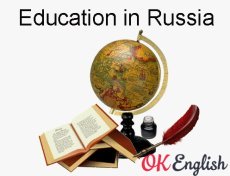
Топик (сочинение) по английскому языку на тему Education in Russia — Образование в России
Education plays a very important role in our life. It is one of the most valuable possessions a man can get in his life.
The literacy rate in Russia is almost 100%. Half of Russia’s adults has at least college education. So Russia has the highest college-level education in the world.
Russia has pre-school educational system. About 2/3 of children aged 5 attend kindergartens. Since the age of 6 or 7 children attend school. Eleven-year secondary education in Russia is compulsory. School term has 3 stages: elementary (grades 1-4), middle (grades 5-9) and senior (grades 10-11) classes.
Before 1990 the course of school training was 10-years, but since 1990 school study lasts for 11 years. Education in state schools is free. Male and female students have equal rights in all stages of education.
The school year starts in September 1 and finishes in May. It is divided into four terms. Study programme in schools is fixed. It means that schoolchildren can’t choose subjects they want to study.
When children finish school, they have to pass the Unified state examination (USE). It’s the set of standardised tests.
University level of education in Russia is high. The country inherited a system of high level of education from the Soviet Union.
A student can continue his/her education in colleges and universities.
| Education in Russia | Образование в России |
| Education plays a very important role in our life. It is one of the most valuable possessions a man can get in his life. | Образование играет очень важную роль в нашей жизни. Это одна из самых ценных вещей, которую человек может получить в своей жизни. |
| The literacy rate in Russia is almost 100%. Half of Russia’s adults has at least college education. So Russia has the highest college-level education in the world. | Уровень грамотности в России практически 100%. Половина взрослого населения имеет как минимум профессиональное образование. Так что Россия имеет самый высокий уровень среднего профессионального образования в мире. |
| Russia has pre-school educational system. About 2/3 of children aged 5 attend kindergartens. Since the age of 6 or 7 children attend school. Eleven-year secondary education in Russia is compulsory. School term has 3 stages: elementary (grades 1-4), middle (grades 5-9) and senior (grades 10-11) classes. | Россия имеет систему дошкольного образования. Около 2/3 детей 5-летнего возраста посещают детские сады. С возраста 6-7 лет дети посещают школу. В России обязательное 11-летнее школьное образование. Школа делится на 3 ступени: начальная (1-4 класс), средняя (5-9 класс), полная (10-11 классы). |
| Before 1990 the course of school training was 10-years, but since 1990 school study lasts for 11 years. Education in state schools is free. Male and female students have equal rights in all stages of education. | До 1990 года длительность школьного образования составляла 10 лет, но с 1990 школа длится 11 лет. Образование в государственных школах бесплатное. Учащиеся мужского и женского пола имеют равные права на всех стадиях образования. |
| The school year starts in September 1 and finishes in May. It is divided into four terms. Study programme in schools is fixed. It means that schoolchildren can’t choose subjects they want to study. | Школьный год начинается 1 сентября и заканчивается в мае. Он делится на 4 четверти. Школьная программа единая для всех. Это значит, что школьники не могут выбирать, какие предметы учить. |
| When children finish school, they have to pass the Unified state examination (USE). It’s the set of standardised tests. | Когда дети заканчивают школу, они должны пройти Единый государственный экзамен (ЕГЭ). Они представлены в виде стандартизированных тестов. |
| University level of education in Russia is high. The country inherited a system of high level of education from the Soviet Union.A student can continue his/her education in colleges and universities. | Уровень высшего образования в России высокий. Эта страна унаследовала систему полного образования от Советского Союза.Студент может продолжить образование в разного рода колледжах и университетах. |
Английские темы, топики, сочинения для школьников и студентов
Citizens of Russia have the right for education which is guaranteed by the Constitution. The public educational system in our country incorporates pre-school, general school, specialized secondary and higher education.
Pre-school consists of kindergartens and creches. Children there learn reading, writing and arithmetic. But pre-school education isn’t compulsory — children can get it at home.
Compulsory education is for children from 6(7) to 17 years of age.
The main link in the system of education is the general school which prepares the younger generation for life and work in modern production. There are various types of schools: general secondary schools, schools specializing in a certain subject, high schools, lyceums and so on. Tuition in most of them is free of charge, but some new types of schools are fee-paying. The term of study in a general secondary school is 11 years and consists of primary, middle and upper stages. At the middle stage of a secondary school the children learn the basic laws of nature and society at the lessons of history, algebra, literature, physics and many others.
After the 9th form pupils have to sit for examinations. Also they have a choice between entering the 10th grade of a general secondary school and enrolling in a specialized secondary or vocational school.
Persons who finish the general secondary school, receive a secondary education certificate, giving them the right to enter any higher educational establishment. Entrance examinations are held in July and August. Institutions are headed by rectors; the faculties are headed by the deans. One has to study in the institute for 5 years. Higher educational institutions train students in one or several specializations.
Версия для печати
Другие топики по теме:
- Schools in England
- School of My Dream
- Learning languages
- Education in Russia (2)
- Homework
- Education in Canada
- History of Education
- Education in the USA
- American Schools
- Learning foreigner language
- Весь список
Словарь
- exception [ɪkˈsepſ(ə)n] — исключение;
- compulsory [kəmˈpʌlsərɪ] — обязательно;
- skill [skɪl] — мастерство;
- to depend [dɪˈpend] — зависить;
- mandatory [ˈmændətərɪ] — обязательный;
Education is an important part of modern life.
Originally Russian education starts from the early age. Children can start going to kindergarten from the age of two, but this is not a compulsory education. It depends on parents’ decision and child’s wish to attend this institution.
In the Russian Federation the school education is compulsory. Pupils start going to school from the age of seven and till 16.
Mandatory education in Russia is presented by three types of schools: primary, secondary and high.
The primary school teaches its pupils elementary skills, such as reading, writing, counting. Many schools also offer foreign languages or some other special disciplines at this age.
The most important period is the secondary school, which starts from the 4th or 5th grade, depending on school. This is the time when children start learning Biology, Geography, Chemistry, Physics, Computing, and many other new subjects.
At the 9th grade children face a very important period in their life. They have to choose whether to continue school education, or to leave for other types of educational institutions, such as college, specialized schools and else. If the pupil decides to continue studying in high school, which lasts for two years, he can enter the university after school graduation.
Of course, it’s only the general pattern of education in Russia, but there can also be some exceptions nowadays. For example, there are lots of special schools, where they pay attention only to particular subjects. Also, apart from state schools, there are a number of private schools, where education is not free of charge.
When they complete high grades they can either continue to study at school for more 2 years, or go to a professional school where they study not only main subjects, but are able to learn some profession. When school pupils leave school they can try to continue their educaton in institutes or universities.
Топик «Образование в России» (Education in Russia) — 4.3 out of
5
based on
54 votes
The education system in Russia is divided into pre-school, general school, specialized secondary and higher education. This structure includes different levels and stages, so that every student can follow the way he or she prefers.
Pre-school education isn’t compulsory; kids may either stay at home with parents and nurses or visit kindergartens. Children learn reading, writing and arithmetic. They find out how to behave in the classroom and prepare for school.
Compulsory education starts from the age of 6(7) till 17 (18). General education is represented by general secondary schools, schools specializing in a certain subject, high schools, lyceums and so on. Tuition in most of them is free of charge, however, there are a lot of private schools which are not cost free. The term of study in a general secondary school is 11 years and consists of primary, middle and upper stages. In Russia students can’t choose their subjects, all of them are compulsory.
The 9th form finishes with passing examinations. Then, pupils are able to leave school and continue education in a specialized secondary or vocational school. However, many children enter the 10th grade of a general secondary school and study till the end of 11th form.
After graduation and national exams which are essential for enrolling the higher establishment next stage of education begins. Students with a Certificate of Basic General Education can get higher and postgraduate education. There is possibility to go to universities, academies, institutions and so on.
Словарь
pre-school, general school, specialized secondary and higher education – дошкольное, общеобразовательное, среднее специальное и высшее образование
compulsory – обязательный
kindergartens – детские сады
tuition – обучение, стоимость обучения
free of charge – бесплатный
not cost free – платный
vocational school – профтехучилище
higher establishment – высшее учебное заведение
Certificate of Basic General Education – Аттестат о базовом общем образовании
Russians have always shown a great concern for education. The right to education is stated in the Constitution of the Russian Federation. It is ensured by compulsory secondary schools, vocational schools, and higher education establishments. It is also ensured by the development of extramural and evening courses and the system of state scholarships and grants.
Education in Russia is compulsory up to the 9th form inclusive. The stages of compulsory schooling in Russia are: primary education for ages 6-7 to 9-10 inclusive; secondary education including intermediate school for ages 10-11 to 12-13 inclusive, and senior school for ages 13-14 to 14-15 inclusive. If a pupil of a secondary school wishes to go on in higher education, he or she must stay at school for two more years. Primary and secondary school together comprise 11 years of study. Every school has a «core curriculum» of academic subjects, such as Russian, Literature, Mathematics, History, a foreign language and others. Lyceums and gymnasiums offer programs giving a profound knowledge in some field of study.
After finishing the 9th form one can go on to a vocational school which offers programmes of academic subjects and a programme of training in a technical field, or a profession.
After finishing the 11th form of a secondary school, a lyceum or a gymnasium one can go on in higher education. All applicants must take competitive examinations. Higher education institutions, that is, institutes or universities, offer a 5-year programme of academic subjects for undergraduates in a variety of fields, as well as a graduate course. If one finishes a graduate course and writes a thesis, he or she receives a candidate’s degree or a doctoral degree.
Higher educational establishments are headed by Rectors. Prorectors are in charge of academic and scientific work. An institute or a university has a number of faculties, each specializing in a field of study. Faculties have specialized councils which confer candidate and doctoral degrees.
The system of secondary and higher education in Russia is going through a transitional period. The main objectives of the reform are: to decentralize the higher education system, to develop a new financial mechanism, to give more academic freedoms to faculties and students. All secondary schools, institutes and universities until recently have been funded by the state. Now there is quite a number of private fee-paying primary and secondary schools; some universities have fee-paying departments.
Topical Vocabulary
— to show a great concern for education
придавать большое значение образованию
the right to education
право на образование
to be stated
отмечаться, констатироваться
to be ensured by smth.
обеспечиваться чем-либо
a secondary school
средняя школа
a vocational school
училище
a higher education establishment
вуз
an extramural course
заочное обучение
an evening course
вечернее обучение
state scholarships and grants
государственные стипендии
compulsory schooling
обязательное школьное обучение
primary education
начальное образование
secondary education
среднее образование
intermediate school
средние классы
senior school
старшие классы
to go on in higher education
продолжать образование в вузе
a core curriculum
основная программа
an academic subject
академический предмет
to give a profound knowledge
давать углубленные знания
— a programme of training in smth.
программа подготовки по какому-либо предмету
— an applicant
абитуриент
to take competitive examinations
сдавать конкурсные экзамены
a higher education institution
вуз
a graduate course
аспирантура
a candidate degree
степень кандидата наук
a doctoral degree
степень доктора наук
— to be headed by Rector
возглавляться ректором
to be in charge of academic and scientific work
отвечать за учебную и научную работу
a specialized council
специализированный совет
to confer a degree
присваивать степень
— to go through a transitional period
находиться в переходном периоде
to decentralize smth.
уничтожить централизацию в чем-либо
to develop a new financial mechanism
создать новый финансовый механизм
to be funded by the state
финансироваться государством
a private school
частная школа
a fee-paying school
платная школа
Answer the questions:
- What is the right to education in Russia ensured by?
- What are the stages of compulsory schooling in Russia?
- What programmes of study do different types of school in Russia offer?
- What is a vocational school?
- What is necessary for entering a higher education establishment?
- What degrees can one get at a higher education establishment?
- What is the structure of an institute or a university?
- How can you prove that education in Russia is going through a transitional period?
Translate into English:
- Право на образование, записанное в конституции, доказывает, что в России придается большое значение образованию.
- Существует два этапа обязательного школьного образования в России: начальное образование и среднее образование.
- Обязательное среднее образование в России состоит из двух этапов: средние классы и старшие классы.
- Во всех школах есть основная программа; лицеи и гимназии предлагают академические программы и программы, дающие углубленные знания в одной из областей.
- Поступающие в вуз должны закончить 11 классов средней школы и пройти через конкурсные вступительные экзамены.
- После окончания курса аспирантуры и написания диссертации аспирант получает степень кандидата наук.
- Во время переходного периода меняется финансовый механизм образования: появляются частные школы и платные отделения в институтах.

